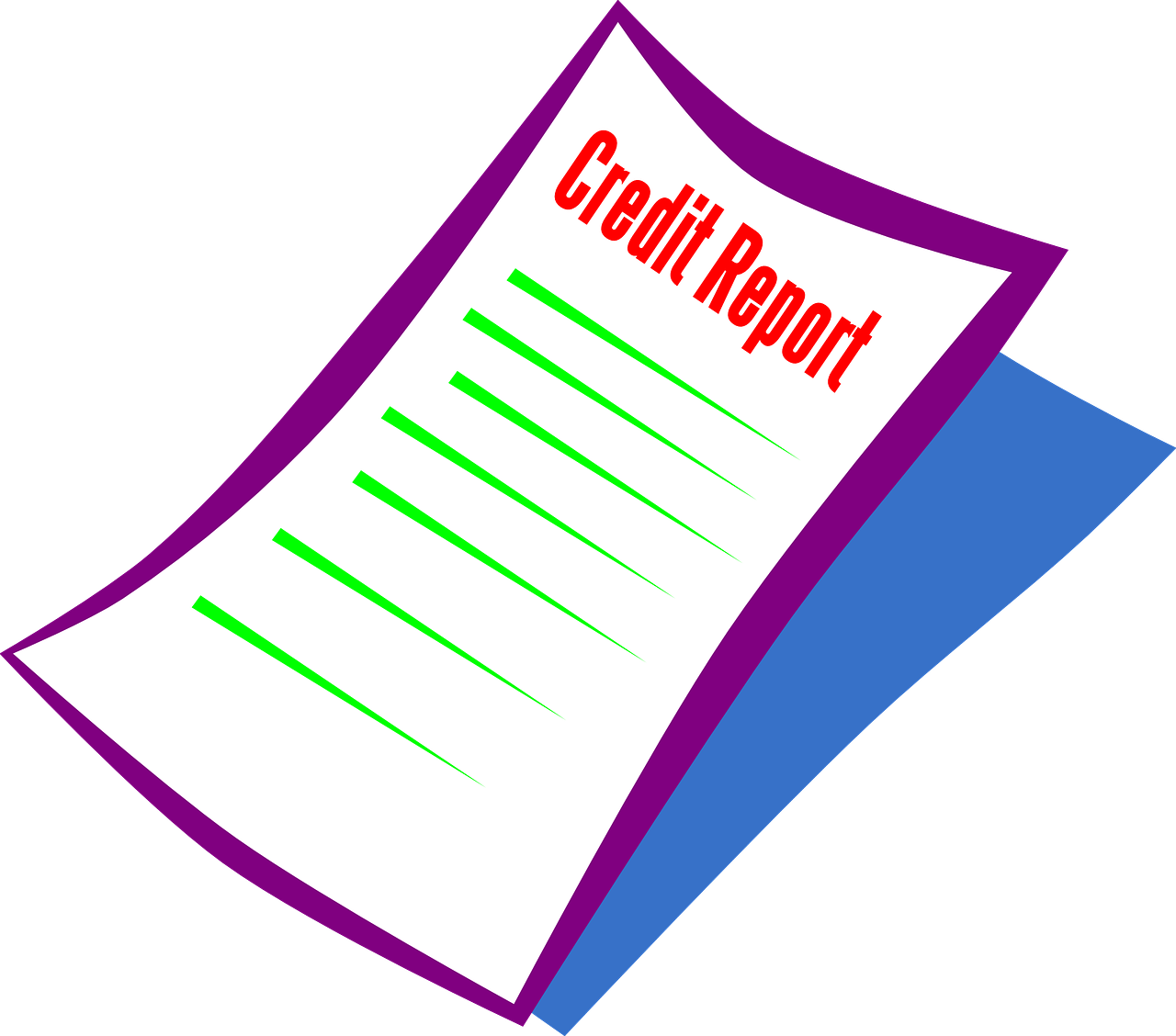Supersizing Small Living Spaces

Has your home started to feel a little small for your family? It happens to the best of us. The things we own gradually end up colonizing a lot of our free space, and the house which felt “just right” a few years ago can suddenly feel as tiny as a shoe closet.
Fortunately, there are some simple tricks you can try to supersize your small space. Most of these tricks are a matter of changing perspective rather than opening up more square footage. Before you try them, consider a real effort to declutter first. After you declutter, have fun and use the tactics listed below to maximize your living space.
- Lighten up the walls. Color can make the difference between breezy, cozy, and claustrophobic. Dark colors on walls make them seem smaller and denser, while lighter ones broaden your view and reflect more light. While white can be a bit harsh, there are other cheerful tones such as lemon, mint, and cornflower which can transform a space.
- Aim high. Many times, our gaze tends to lock onto the things in the way of our feet. If you have zones of heavy storage occupying square footage, look for ways to get those items off the ground. Corner shelves, hidden cabinets, and even hanging racks can do wonders for widening up narrow spaces. Hanging pictures higher up on walls can make rooms feel taller as well.
- Widen up the windows. Big curtain rods which extend beyond the border of the window can make a window seem larger, and making the move to keep them open (perhaps with sheer drapes for privacy) can let in crucial light. If you have a little renovation money, consider adding windows to rooms where less-than-ideal lighting conditions exist.
- Cast mirror magic. Amplifying light is a big theme here, so position large mirrors across from windows to create “windows” where no window can exist. Even if you don’t have a window handy, a large mirror can boost the feel of even the tiniest room.
- Demand double duty furniture. Hidden storage in large furniture can be a boon for making the most diminutive room more manageable. Take, for example, raised bed platforms with drawers built in the frame, a narrow cupboard with a garbage basket that tilts out, or foot stools and coffee tables that can hold your blankets and pillows. Pinterest is a fantastic source for these ideas. Simply search for “storage furniture for small spaces”. Stand back and survey your home and look for any opportunity to hide storage in existing objects.
Hopefully these five tips will make your small house more spacious. If they still don’t make enough room for peace of mind, it might be time to consider upsizing. Prescott has a variety of housing options that I will be happy to show you. I can also help you assess how much home you can afford, and help you determine the value of the house you’ve outgrown. Drop me a line if you’re ready for the big time! Contact me at (928) 710-9148.
Should I Negotiate Repairs Before Closing?

Even though I am a realtor with extensive experience in real estate, the word ‘inspection’ tends to make me, as well as many of my clients, uncomfortable. This is truly understandable. If you are the seller, you don’t want to lose the sale. If you are the buyer, you don’t want to lose buying the house of your dreams. Plus, add into the scenario, no-one wants to spend more time and money than necessary. All of that combined can make an uncomfortable situation.
Buying and Selling homes in Prescott, Arizona, is unique since the area has all types of homes. Prescott has 125 year old historic homes, senior mobile homes, new custom homes, starter homes, luxury homes, ranches, subdivision homes . . . the list can go on and on. At the time of sale, each home typically will under go an inspection. Here is a question that I receive often regarding the repairs that are pointed out during an inspection. Hopefully, this will help you when you are in a similar situation:
Q: The home inspection just completed on a home I have under contract turned up some issues. Should I insist the repairs be completed before closing?
A: It depends. Everyone wants a smooth closing and home inspection negotiations are definitely a place where a deal can fall apart. Here are some things you’ll want to consider:
- If you require the seller to make the repairs, do you think they’ll do as good of a job as you would? After all, they’re getting ready to move on to their next home. While the repairs must meet certain standards of quality, they might not measure up to your own high standards (though they technically fulfill their end of the bargain).
- Ask yourself, do the repairs matter in the grand scheme of things? Are you quibbling over some peeling linoleum in a kitchen you’re already planning to renovate from the floor up?
- The back-and-forth over repairs could delay your closing. Remember, actually getting the work done will involve selecting a contractor, scheduling the work, and final review of the work completed.
In lieu of having the repairs made before closing, you might decide to seek a cash-back credit at close of escrow. This way you can have the work done on your terms and your timeline after closing (and you might just offset some of those closing costs as well).
Negotiating cash-back at close of escrow is just one of the many reasons working with a real estate professional is to your benefit. Realtors are trained and take many – many (many) classes on how to make sure they are equipped to help buyers with the best strategies to make an equitable and smooth transaction. It is best not to navigate the process alone. You deserve a home in satisfactory shape! How it gets that way is often negotiable. I’m happy to help you with any questions you may have and make sure you get the most out of your next real estate experience! Contact me at (928) 710-9148.
How to Respond to Lowball Offers

Your agent is required to bring you any and all offers made on your home even if it is a ‘bad’ offer. Once and a while you’ll receive what’s known as a “lowball” offer. Lowball offers are buyer offers which far fall below your asking price. Sometimes they’re so low that they only serve to make you angry.
Don’t get angry! While selling your home is an emotional process, there are rational, effective strategies for dealing with the lowball offer. Sometimes the lowball offer can even turn into the right price if you handle negotiations the right way.
- Remain calm. Although your first reaction to a lowball offer may be anger or disgust, take a breath and remain calm. There is nothing to gain in making enemies.
- Understand that sometimes buyers aren’t familiar with true market value. They may be from somewhere where homes are much less expensive, or they could be first-time buyers who have been counseled by friends and family to begin with lowball offers.
- Have your agent communicate that while you’re happy to work with them as buyers, you’ll need an offer which is somewhat more competitive and at a level you could consider seriously. When responding back, remember that “you can catch more flies with sugar and honey than with vinegar.”
- Consider countering for a small amount off your asking price to signal your willingness to negotiate, but reiterate that you will need to hear something more in line with market value to continue negotiations.
- Alternately, if you really are in a hurry to sell, counter with your rock-bottom offer. This number may not be close to their lowball, but it could be substantially less than your listing price. This may make the lowball buyer suddenly reconsider their position, tempted by the opportunity to purchase the property at what they consider to be a “substantial discount.”
- Ask the buyer to justify their price. If they truly believe their offer is genuine and fair, they should be able to point to reasons why your listing price is inflated. Make them show their homework. If they haven’t done it, you’ll know soon enough.
- Don’t fall for the “but we can’t afford more” pity play. Sympathize with their financial situation, but in no way let it sway you from the true value of your home.
To steer clear of lowball offers, don’t appear desperate. In your home’s descriptions, you may have listed yourself as a “motivated” seller. This will open yourself up to buyers believing that they can get away with purchasing your home for discount.
Of course sometimes a stream of lowball offers can indicate that the home is priced too high. Occasionally agents will “buy the listing” by assuring sellers they can get the higher price, only to take a lower offer much later down the line. It’s not a sound strategy. If you’re looking for the honest market value of your home, get in touch with me today. Contact me at (928) 710-9148.
How to Avoid Common Earnest Money Errors

Earnest money is a great way to show a seller you’re serious about the offer you’re making on their home. But first, what is earnest money? Investopedia helps define earnest money as a deposit from a buyer to a seller to represent a buyer’s ‘good faith.’ The deposit is a way for buyer to receive extra time to get financing and conduct the title search, property appraisal, and inspections before closing.
By placing this deposit down to demonstrate your commitment to follow-through on the contract, you’re saying “I love this home and I’m ready to go.” But there’s a real risk involved: If you make a mistake, you might be out a chunk of cash.
Here are some ways to avoid burning your home-buying bankroll in lost earnest money:
- Make sure it’s the home you really want. Seem obvious? Sure. But it’s easy to get swept up in the moment. Recognize that you’re about to enter into a legally binding contract and that the money you’re risking will hurt if you change your mind. While you may not be able to drag your feet on the decision, check your gut to see if there are any reservations lurking there before you go all in.
- Don’t sacrifice contract contingencies. Don’t let your desire for a home cause you to blindly remove contingencies which are built into contracts to protect buyers. Common ones include loan contingencies, title search issues, appraisal, and insurance obstacles. Waive these at your own peril.
- Avoid committing to a home “as is.” If you’re putting earnest money on an offer for a foreclosed home, don’t be too eager to accept any problem the home may have. Take the time to understand the home’s issues before you write the offer.
- Read the contract timelines. Look at closing dates and other dates related to the process leading up to closing. Violating the timeline could cost you your earnest money as well.
- Ensure you have recourse to get some or all of your earnest money back. If the sale doesn’t gel, you and the buyer will need to sign a document voiding the agreement. Don’t sign this until you understand how it will impact your earnest money refund. The seller’s title can be negatively impacted if you don’t sign off, so keep your leverage handy until you’re sure you’ve been fairly treated.
Protect yourself and your down payment by playing smart with your earnest money. If you have questions or concerns, ask your agent to help you understand everything in plain language!
Ready to buy? Let me help you find the right home and protect your interests along the way. Contact me at (928) 710-9148.
Overlooked Ways You Can Save On Home Insurance

Homeowners insurance is vital for protecting your investment. It’s also required by lenders holding the mortgage on your home. For some reason, many homeowners overlook ways they can save money on their premiums. Shopping around is a good idea, but much like auto insurance, there are many simple things you can do to impact how much you pay annually to protect your home.
- Raise your deductible. Do you really need a low deductible on your insurance policy? Many people can absorb the hit if they go from a $500 deductible to a $1000 deductible, and in some cases, this simple move can reduce rates up to 25%. Deductibles can have a dramatic impact on your premium, so ask your company rep to quote you the difference.
- Don’t insure for your home’s purchase price. Remember, you don’t have to re-buy the land your home is on if you have to rebuild. If you’ve asked for coverage which includes the land cost as well as the structure cost, you could be paying far more than you need to pay to protect your home.
- Retired? Seek a discount. If you’re over 55 and you’re retired, your insurance company may be willing to drop your rate by as much as 10%. This is because those that are retired are home more often, which helps reduce burglaries and provides an early warning system for fires.
- Ask for a loyalty discount. If you’ve been with your insurance company for at least three years, call them up and bring this to their attention. Let them know you’re considering shopping for a new policy, and you’re curious if they can extend you a discount for being a loyal customer. Savings can range from five to ten percent.
- Adjust your coverage for possessions. You may be insuring for more than you own. Certain high-end computers and other luxury goods may depreciate over time. If the limits on your policy far exceed the value of your possessions, make changes to your policy. The difference can add up. (Do this every year.)
- Purchase home and auto policies from the same insurer. Insurance Information Institute states that buying two or more insurance policies from the same insurer will often reduce your premium. Most companies that offer homeowners insurance also offer auto insurance. However, make sure to check that the combined price under the insurer is a better price rather than buying coverage separately from different companies.
- A good credit record. Insurers will use credit information to price insurance policies, therefore, a solid credit history will cut insurance costs. Checking your report periodically is a good idea to check for inaccuracies. If you do find an error, the best way to attempt a correction is through a dispute letter. Dispute letters allow you to formally request a fix by the reporting agency. Though it may take a little time to get the errors removed, cleaning up these mistakes can have a direct (and favorable!) effect on your credit score.
Factoring in insurance costs is an important part of determining how much home you can afford. For more information on how different types of homes can have different insurance costs, talk to me today. Contact me at (928) 710-9148.
How Pocket Listings in Real Estate Work

Not every home sold gets a shiny new for sale sign out front. Some change hands quickly and quietly without any public advertising whatsoever. In the industry, these are known as “pocket listings.” Pocket listings are sometimes referred to as “coming soon” listings or “whisper” listings.
Pocket listings used to be the domain of the very famous or the very wealthy. People who liked to protect their privacy would typically work with an agent who could find a buyer among word-of-mouth networks of agents representing high-end buyers. Often this happened only in urban areas or in the luxury segment, but now in markets where inventory is tight and bidding wars are not uncommon, pocket listings are becoming somewhat more mainstream.
You might ask yourself: Why not advertise a home in a market where multiple offers are the norm? It can depend. In some cases, the seller may want a quick and painless sale, and would prefer not to go through the traditional process of cleaning, curb appeal sprucing, and open houses. When the seller’s agent happens to know the buyers directly, often a simple walk-through with prospective buyers is enough to secure one acceptable offer.
Sellers should understand that it’s possible for a pocket listing to generate a slightly lower price. While it’s not always the case, the trade-off for a quick, quiet sale may be worth it. If you’re considering a pocket listing, you’ll be asked to sign something which indicates your consent to avoid a wide-scale advertising effort. An agent has a responsibility to try and secure a seller the best possible price, and will want to make sure there’s a clear understanding.
Pros and Cons of a Pocket Listing
Below is a recap of the pros and cons of a pocket listing from an article by Moving.com.
- Pros for the seller is that they maintain their privacy and that a pocket listing can prevent the unfortunate experience of having a home’s value decrease because it sat on the market too long.
- Pros for the buyer is that the competition won’t be as fierce, the buying process will be more flexible, and they may be able to purchase the home below market value.
- Cons for the sellers is that there will be less buyers offering on the home and it may take longer for the home to sell.
- Cons for the buyers is that their will be less wiggle room on the price and their will be a lack of information and photos on the home.
On the whole, casting the widest possible net for a buyer is the best strategy for securing the highest closing price, but if you’re more comfortable with a quick and quiet approach, you might want to talk to an agent about the prospect of a pocket listing.
I know selling is a tough decision, with numerous factors to considers. Give me a call and I can answer your questions and put your mind at ease. Contact me at today (928) 710-9148.
Cleaning Up Credit Inaccuracies

Discovering an error on your credit history can be a rude surprise when you’re attempting to get pre-approved for a mortgage. Though most people don’t think about the details of their credit report until the need to secure a loan, it’s a good idea to check your report for inaccuracies periodically. It is easy to do, each of the nationwide credit reporting companies, Equifax, Experian, and TransUnion, are required to provide you with a free copy of your credit report, at your request, once every 12 months.
If you do find an error, the best way to attempt a correction is through a dispute letter. Dispute letters allow you to formally request a fix by the reporting agency. Though it may take a little time to get the errors removed, cleaning up these mistakes can have a direct (and favorable!) effect on your credit score, helping you secure lower interest rates and better terms.
Here’s what you’ll need to include for each mistake you find:
- Which account shows the mistake.
- Specifically what’s incorrect about the account where it appears in the report.
- What changes should be made and why those changes should be made.
- Any supporting evidence or documentation which will bolster your claim.
- Send letter by certified mail with a return receipt requested, so that you can document what the credit reporting company received.
For example: “On my report, the Chase Visa ending in XXXX shows my account is still active. I closed this account in 2012 and should be shown as closed, not active. Included is a letter from Chase bank, confirming the date of the account’s closure.”
It’s a good idea to keep copies of everything you send. Also, be sure to send the correction to all three major reporting agencies (Equifax, Experian, and TransUnion) as well as the original creditor (i.e. the credit card company, utility, etc.). You can find the current dispute mailing addresses on these company’s websites. Federal law mandates that agencies must help you within 30 days. Keep records of your disputes and when/how you communicated with the agencies.
An article by Experian offers insight on credit scores and disputes. Filing a dispute has no impact on your score, however, once your dispute is processed, that is where your credit score could change. Along with this, updating or changing information such as identification or address information will not affect your credit score.
Why Clean Your Credit
Having the cleanest credit report as possible will result in a higher credit score, that in turn increases your chances of getting pre-approved for a mortgage. A low credit score means that you will be charged a much higher interest rate when you apply for a home loan. In addition, if you have a low credit score, you will be required to contribute a much larger down payment of cash.
When looking to be pre-approved for a mortgage, you first need to get your credit report as clean as possible, pay off as many debts as you can, and make on-time payments. One of the hands-on things you can do today is set up payment reminders and pay your bills on-time. After these steps are taken, you can then sit back and watch your credit score rise!
According to the law, negative credit information stays on your credit report for seven years. On the other hand, positive information can remain on your credit report indefinitely. That is why getting your credit in shape is an important step to take when you’re preparing to buy a home.
I help buyers prepare every day! Contact me at today (928) 710-9148, I would love to help you buy your next home!


 Facebook
Facebook
 X
X
 Pinterest
Pinterest
 Copy Link
Copy Link

